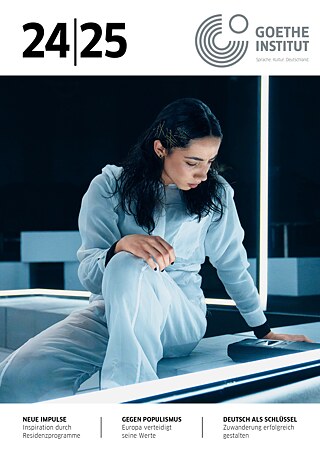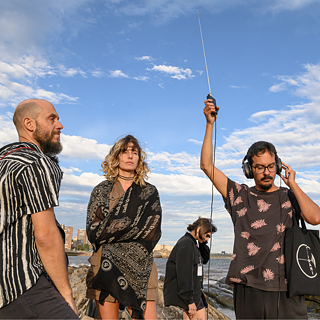Publications
Vision and Strategy 2026
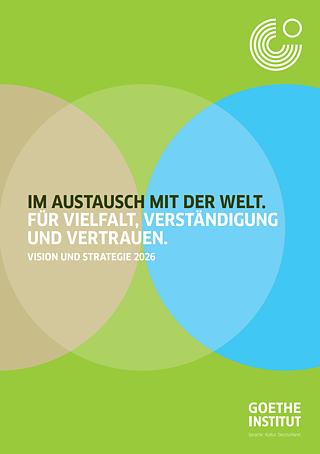
Studies on the subject of culture
-
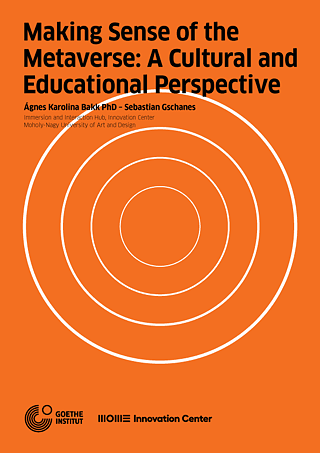 The metaverse is changing educational strategies and enabling new forms of artistic creation. This study is based on 41 qualitative in-depth interviews with experts from the creative and cultural sectors and higher education. It sheds light on how technological advances are perceived and implemented in art, culture and education.
The metaverse is changing educational strategies and enabling new forms of artistic creation. This study is based on 41 qualitative in-depth interviews with experts from the creative and cultural sectors and higher education. It sheds light on how technological advances are perceived and implemented in art, culture and education.
The study is available in English and German language. -
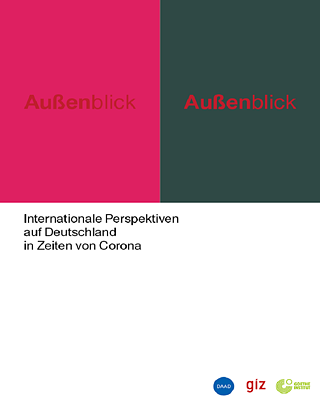 How is Germany viewed by the world? With the study “Außenblick – International perspectives on Germany in times of the Covid-19 pandemic”, DAAD, GIZ and Goethe-Institut want to approach this question. From the perspective of science, culture, economics and politics. A particular focus of the study is the corona pandemic, which affects all areas.
How is Germany viewed by the world? With the study “Außenblick – International perspectives on Germany in times of the Covid-19 pandemic”, DAAD, GIZ and Goethe-Institut want to approach this question. From the perspective of science, culture, economics and politics. A particular focus of the study is the corona pandemic, which affects all areas.
More about the study on the project page. -
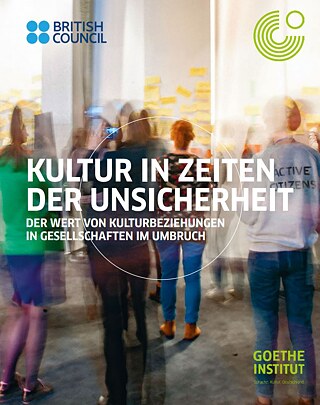 What value do cultural relations have? Can they help strengthen societies in transition? A new study with the British Council on the impact of cultural relations in transitional societies addressed these issues.
What value do cultural relations have? Can they help strengthen societies in transition? A new study with the British Council on the impact of cultural relations in transitional societies addressed these issues. -
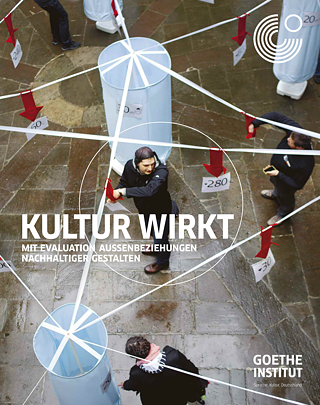 Can and should the effects of art and culture be evaluated? The Goethe-Institut has been investigating this question for several years under academic guidance. The result is this brochure.
Can and should the effects of art and culture be evaluated? The Goethe-Institut has been investigating this question for several years under academic guidance. The result is this brochure.
Studies on the subject of language
-
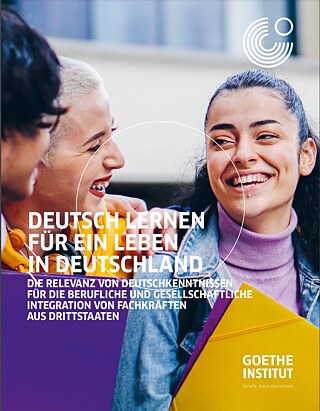 What role does knowledge of German play in the professional and social integration of foreign skilled workers? Is there a positive correlation between learning German and successful entry into the labour market? To answer these questions, the Goethe-Institut commissioned a brief analysis to evaluate scientific findings involving experts from the fields of language acquisition, integration and labour market policy.
What role does knowledge of German play in the professional and social integration of foreign skilled workers? Is there a positive correlation between learning German and successful entry into the labour market? To answer these questions, the Goethe-Institut commissioned a brief analysis to evaluate scientific findings involving experts from the fields of language acquisition, integration and labour market policy. -
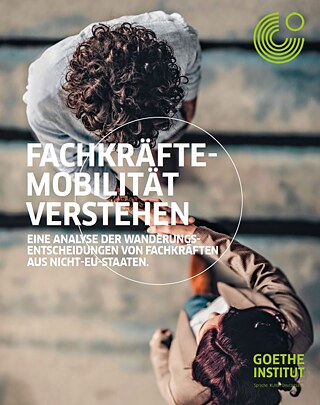 What drives people who can imagine living and working in Germany? What motivates skilled workers to migrate to Germany - and what keeps them from doing so? What support do they need? To answer these questions, the Goethe-Institut together with the market research institute GfK conducted a survey of over 3,000 professionals in five countries.
What drives people who can imagine living and working in Germany? What motivates skilled workers to migrate to Germany - and what keeps them from doing so? What support do they need? To answer these questions, the Goethe-Institut together with the market research institute GfK conducted a survey of over 3,000 professionals in five countries. -
 Immigration of skilled workers: Not only is the need for pre-integration presently greater than ever before, but also its benefits for later integration in Germany. A new study by the Goethe-Institut analyses pre-integration programmes for immigrant workers and provides specific recommendations for action.
Immigration of skilled workers: Not only is the need for pre-integration presently greater than ever before, but also its benefits for later integration in Germany. A new study by the Goethe-Institut analyses pre-integration programmes for immigrant workers and provides specific recommendations for action. -
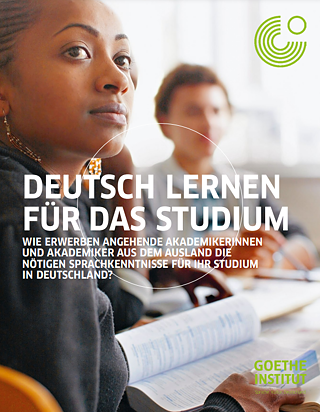 How do foreign students acquire the necessary language skills for their studies in Germany? This question is the focus of a study by the Goethe-Institut and CHE Consult. Recommendations can be derived from its results about how the increasing interest in German can be further strengthened.
How do foreign students acquire the necessary language skills for their studies in Germany? This question is the focus of a study by the Goethe-Institut and CHE Consult. Recommendations can be derived from its results about how the increasing interest in German can be further strengthened. -
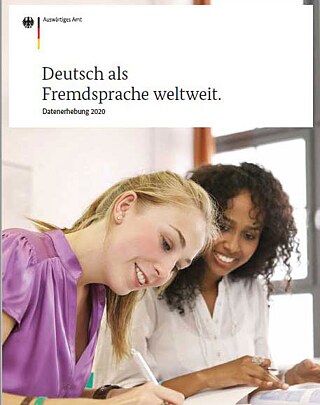 The Interest in the German language continues unabated: As the survey "German as a Foreign Language Worldwide" shows, more than 15.4 million people worldwide are learning German.
The Interest in the German language continues unabated: As the survey "German as a Foreign Language Worldwide" shows, more than 15.4 million people worldwide are learning German.
More about the survey in German.
Contact
We are happy to send you a copy of the print publication of your choice. Please contact:
Communications Division
oeffentlichkeitsarbeit@goethe.de
Goethe-Institut e.V.
Oskar-von-Miller-Ring 18
D-80333 Munich
